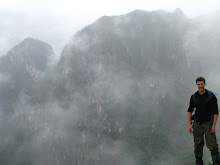English teaching
Little success: villagers found grammar difficult. Volunteers concentrated on vocab instead with more success. Poor commitment from villagers. Also, short length of time volunteers are generally here for makes it difficult to sustain any teaching programme.
Conclusion: Low priority. Seems an unnecessary complication at this stage - considering how difficult it is to teach English - for two reasons. First, a translator is often available. Secondly, handouts in English with interesting facts can be prepared.
However, two interesting options: First, any Quechua speakers within the village so that visitors might hear presentations in the ancient language? Next steps would be to identify any Quechua speakers. Secondly, as a more long-term solution, could use profits from tours to send members to a local language school.
Marketing (locally, in Cusco and for online websites)
Slow progress – unclear from previous reports which agencies are used. There has been no commitment to distribution from locals.
High priority, need to build on relationships. Establish with whom we are working; most popular agencies; which big guidebooks have been contacted with what success. This has now been done to a certain extent, mainly with the conclusion that there are no existing relationships with agencies, except a very recent one with Intrepid, an Australian tour company. This is a very interesting relationship stemming from village networking: a family member of Elizabeth, the Agrotourism President, works in a local bar/restaurant, the owner of which also works sourcing community-friendly projects for Intrepid. This is therefore a strong link that should be built upon. It has yielded record visits at the start of 2008, and they consider 2 tours a week to be a sustainable number, far exceeding past expectations for the project. This relationship needs to be nurtured as a platform on which to build. Intrepid are also keen to sponsor a community-wide project, details of which need to be confirmed. Extract from minutes of Agrotourism board meeting:
Intrepid is prepared to sponsor a project in Chichubamba. However, this must be a project for the benefit of the whole village, rather than just Agrotourism (A).
Elizabeth suggested helping re-open the Chichubamba school, which is abandoned.
Chris suggested that this was too ambitious for A. Currently A should concentrate on making the tours very good and building relationships with travel agencies.
However, he agreed that, hypothetically, it was a good idea. One way in which it could work would be for AA to sponsor a project, such that, for every tour, they would donate a percentage of the profit to the community project. However, Chris would have to look at figures and work out how much the tours cost and whether A could afford to do this.
It was suggested that A could not afford to give from the tour profit, because there was not enough for the members already.
Chris outlined a proposal for raising money. Income and expenses should be counted. Then, ask whether there would be enough money to give to a project at the end of the year, or whether A should increase the price of tours.
Eufracia suggested that a better project to support would be a drinking water project.
At this point the discussion was interrupted so that the members could chase a mouse from the meeting place.
It cannot be stressed enough that this relationship is crucial to the success of the project, both financially and as a test to see if the group can cope sensibly with the high footfall and amount of money coming in.
Quality checking tours
Seems generally good on tour front. Both parties seem to enjoy the experience.
Low priority, as seems to be under control. Next steps, view tours.
Conclusion: after viewing tours, some do need additional material. In particular, more, travel-friendly, products should be available to sell, for example, pressed, dried flowers, perhaps on greetings cards at the horticulture presentation. Could this link in with Kanchay wasi project? [NB. a project providing work and refuge for female victims of domestic violence. A large part of the project seems to be sourcing material for arts and crafts activities.] They could be provided with fresh flowers and paper, then given back to the gardeners to sell/ put in display cases.
Cleaning up town
The Sacred Valley suffers from a lack of local appreciation of sanitation. The mighty Urubamba river, source of the Amazon, is notoriously dirty and in Chichubamba litter can be found regularly. Rubbish bins required.
High priority, as seems to be easy to accomplish and benefits town generally. Need to approach local council about this.
Bathrooms for tourists
Was a crucial point agreed on between ProPeru and Agrotourism group. Has not been fulfilled.
High, this is a good time of year to be carrying out refurbishments (less tourists). Reestablishes good faith. Unfortunately however, this is a problem that has its root in the manner in which this project was set up by ProPeru. The village was approached with the project and seem to have been led to believe they could demand what they liked and it would be given to them with little reciprocation.
Quotation from a previous report (Alfred Dunn):
'However, the project was not set-up just as a plain economic initiative for the people in Chichubamba, but rather is aimed at providing a full package of education that compels the villagers to rethink in various areas such as marketing, packaging, hygiene, coexistence of modern day needs and traditions…etc.
My belief is that it’s very easy for Chichubamba to depend entirely on ProPeru to bring in tourists and achieve the economic incentive part, but in order for the project to be sustainable and beneficial to the community in the long term, the villagers should view tourists as a positive impact on their lives.'
This is an important consideration that needs to be borne in mind when considering next steps.

No comments:
Post a Comment